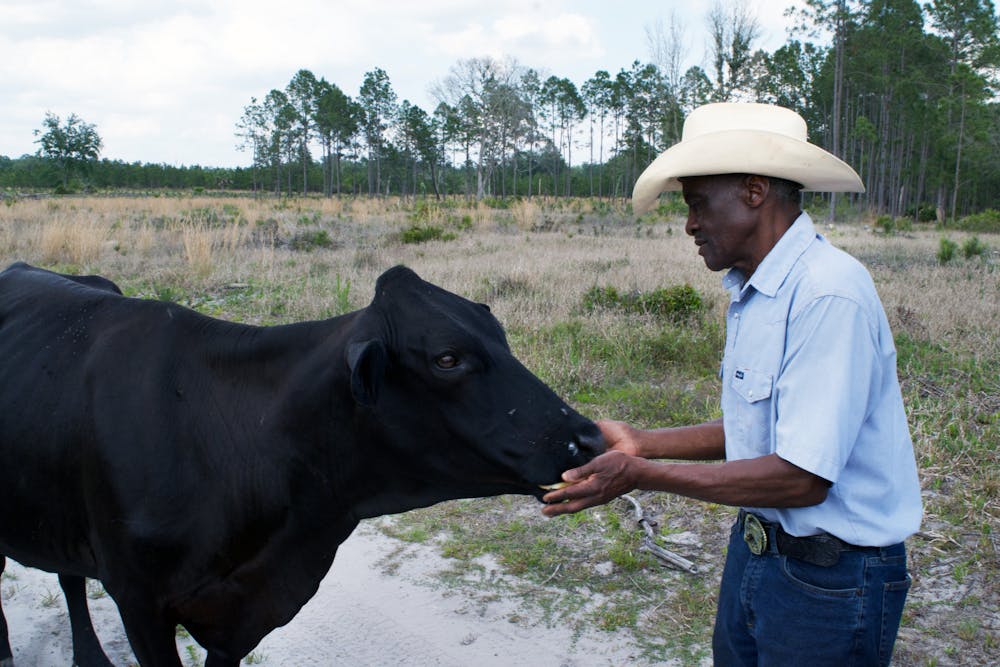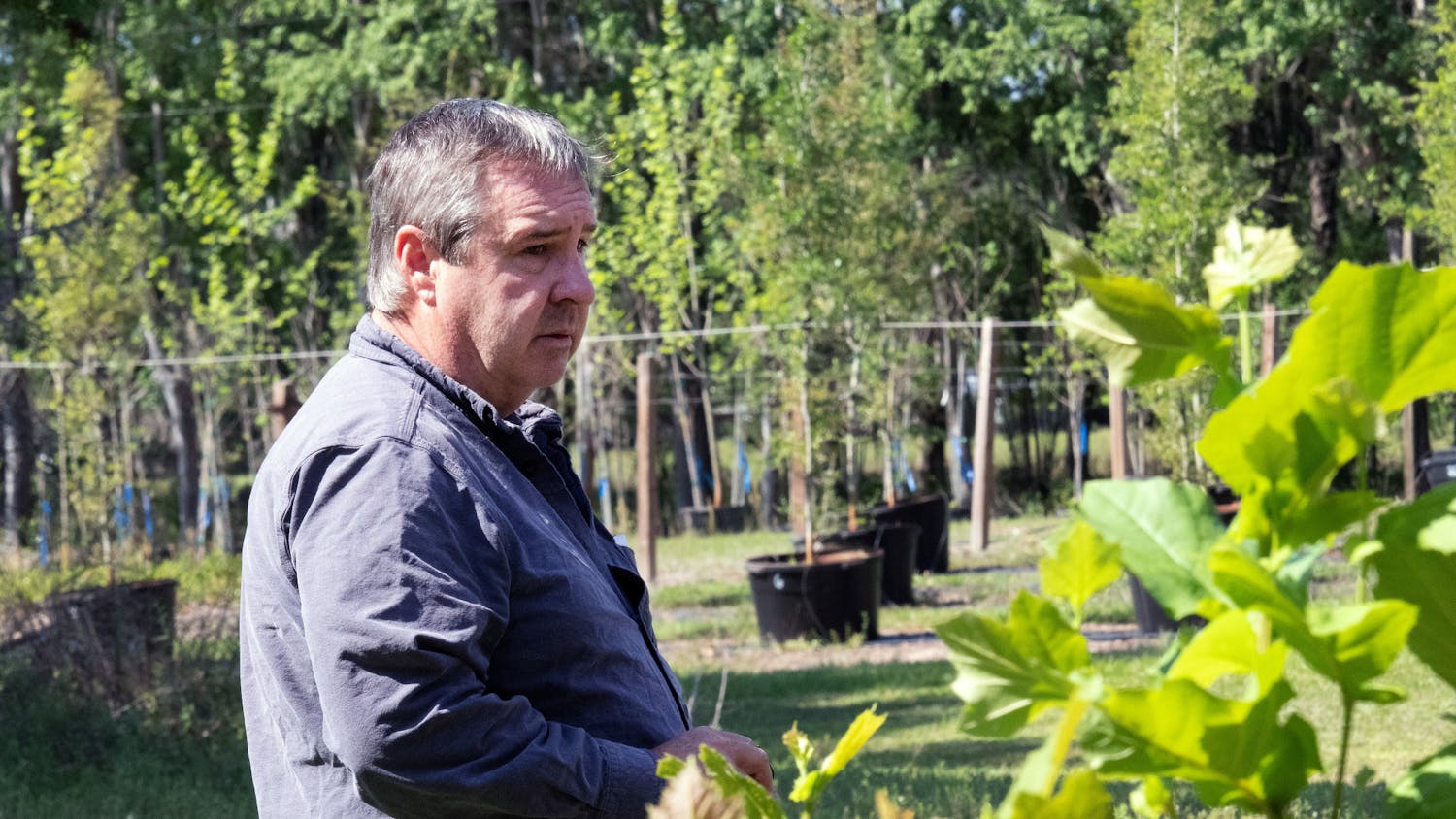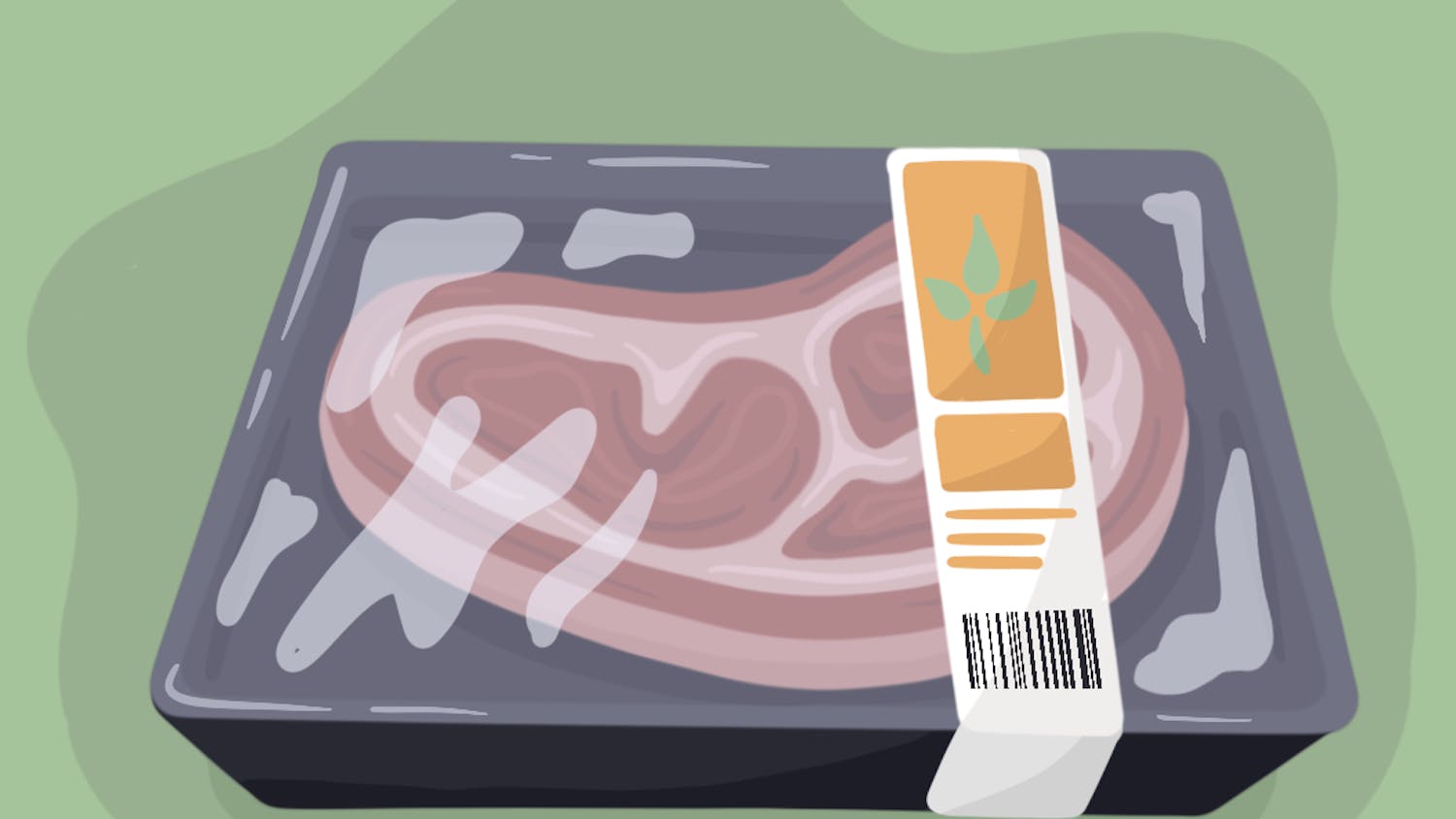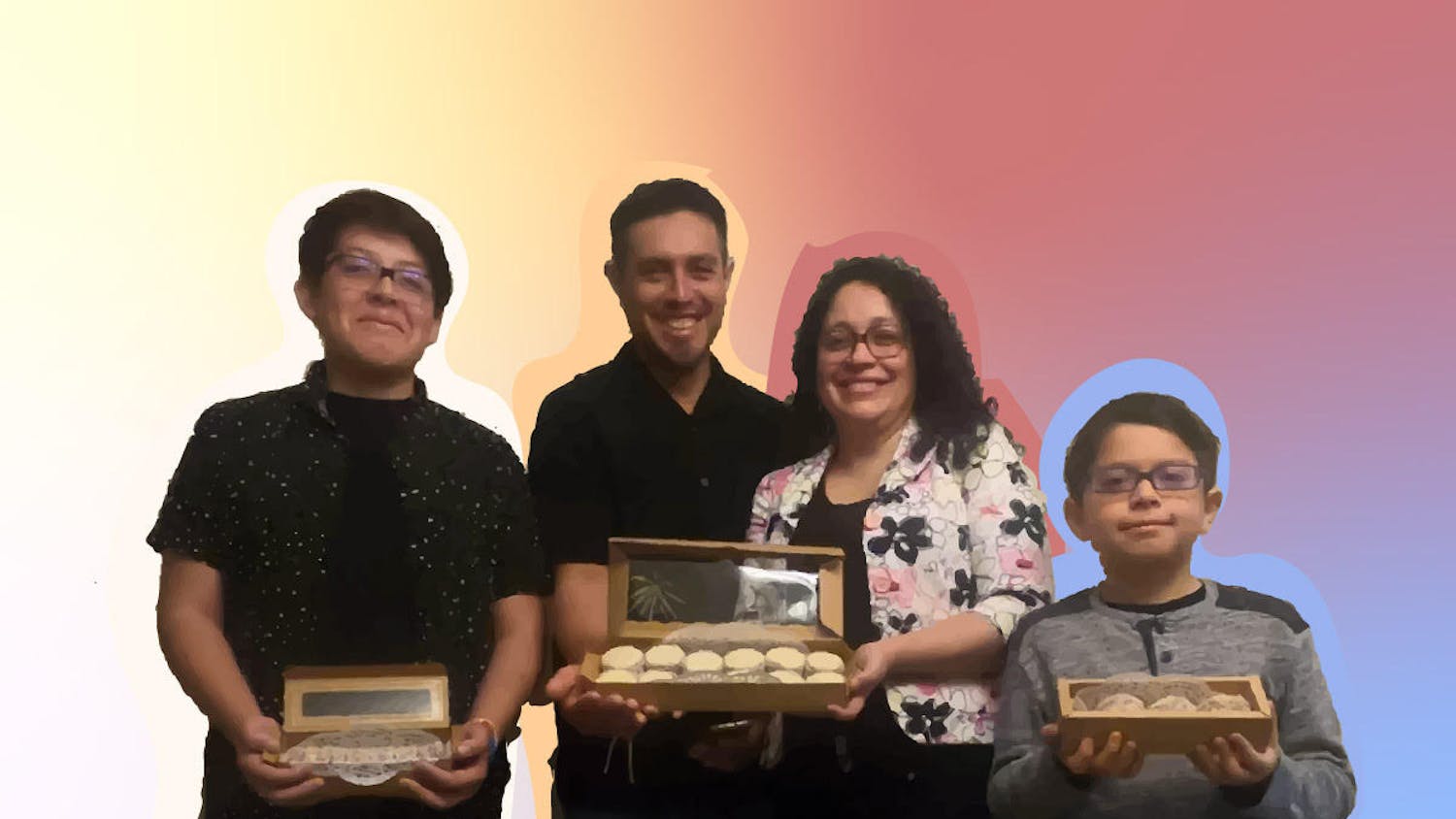Amy Van Scoik is driven by her passion for feeding people, but this mission grows harder each year as the climate becomes more unpredictable. It’s never clear what extreme weather to expect during the next season.
On her Hawthorne farm, Frog Song Organics, an abnormally long freeze last winter wiped out this year’s prospects of a plentiful harvest.
“We’re growing the worst strawberry crop that we’ve seen in a decade,” Van Scoik said.
As severe weather such as hurricanes, floods, freezes and droughts become more common, farmers like Van Scoik are adapting to ensure there’s enough food for Florida’s growing population, which is projected to increase roughly 27% by 2050, according to UF’s Bureau of Economic and Business Research.
Farmers are combating these challenges with new sustainable technologies and practices, such as advanced fertilizers and cattle bred to withstand high heat.
Other measures are older, such as organic farming, which has been on the rise in the U.S. in recent decades, according to the Pew Research Center.
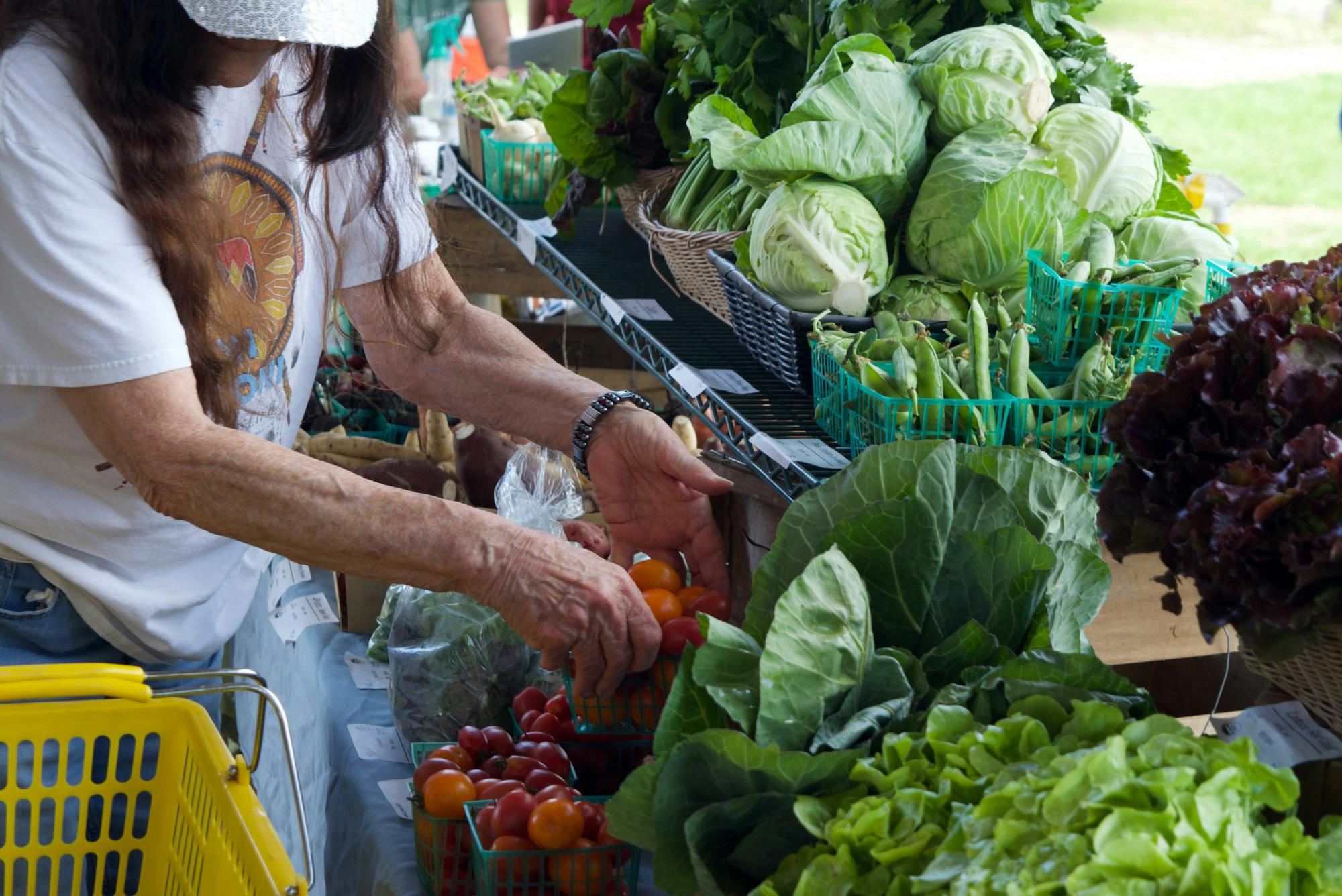
Shoppers at Frog Song Organics Spring Festivals look through fresh produce grown on the farm Saturday, April 15, 2023.
At Frog Song Organics, sustainable agricultural practices are crucial to Van Scoik’s operation.
One strategy is planting cover crops, which aren’t intended to be sold but are meant to act as natural fertilizers while also pulling carbon dioxide from the air. She also uses crop rotation, meaning she plants different produce each year to improve soil health.
When intense storms like hurricanes sweep through Florida, they batter and erode the soil, removing vital nutrients; practices like crop rotation and cover cropping mitigate that damage.
But despite Van Scoik’s efforts, extreme weather like last winter’s freeze still threatens her harvests. That’s why sustainability is more important than ever, she said.
Van Scoik learned her stewardship of the land while watching her grandmother grow food for her family in China, she said.
“It didn’t really all click together until later in life. I was like, ‘Oh yeah, my grandma was showing me how to do all these things,’” she said. “She actually kinda teased me, like ‘Hey, we left mainland China to leave the farm, and you’re wanting to start up a farm?’”
On her farm, Van Scoik and her family produce organic crops like potatoes, squash, onions and peaches, while using livestock to graze and fertilize the land.
For a product to be certified organic by the U.S. Department of Agriculture, no synthetic pesticides, fertilizers or genetic engineering can be used, and 95% of its ingredients must be organic.
This type of farming reduces exposure to pesticides, improves biodiversity and helps store carbon dioxide. But there’s debate whether organic farming could substantially reduce overall greenhouse gas emissions.
Nonetheless, the reduction in synthetic fertilizers from organic farming is crucial to protecting Florida’s groundwater, said Kevin Korus, Alachua County’s UF Institute of Food and Agricultural Sciences agriculture and natural resources agent.
“We have these sandy soils that don’t hold a lot of nutrients,” Korus said. “There’s always going to be a need for high fertilizer inputs in Florida.”
Proper fertilizer use is just one way Florida must adapt to meet growing demand while also protecting the environment, Korus said.
If agriculture continues to become more productive, Korus believes there will be enough food to meet global demand by the end of the century.
“What we have to fix now are our distribution chains and food waste,” he said.
But that’s no minor task.
Studies show the global demand for food is projected to increase by an average of 78% by 2050. By that time, the population is expected to reach 9.8 billion people, according to the United Nations.
And as the population boom puts a strain on already overtaxed resources, so will the effects of climate change. More frequent and intense storms mean more stress on agricultural output.
To feed the planet, all types of food production need to become more efficient, including livestock, said Raluca Mateescu, a UF animal science professor.
“The world is still going to need a lot of animal products,” she said. “I know there’s a movement to move away from it, and I have nothing against it. I think that everybody should have the choice to eat what they want.”
But that doesn’t mean ruling out meat consumption completely, she said.
Mateescu studies animal genomics, particularly breeding livestock to withstand the harsh conditions of climate change. Considering nearly half of Florida’s agricultural land involves cattle production, breeding heat-tolerant cows is essential as Florida gets more hot and humid, she said.
Smaller internal organs, slower metabolisms and shorter hair are all favorable traits that reduce body heat — all found in the Brahman cow originating from India, which is used to breed with native Florida cattle.
But the cattle industry also contributes to climate change, with 25% of U.S. methane emissions coming from livestock digestive processes, mostly from cow burps, according to the U.S. Environmental Protection Agency.
Instead of abstaining from meat entirely, Mateescu said emissions will have to be reduced by producing a more sustainable animal.
“A more efficient cow is going to be one that produces less methane,” she said.
Today, the cattle industry can produce the same amount of beef as nearly 50 years ago but with roughly two-thirds the number of cattle, according to a study published in the Journal of Animal Science at Oxford University. However, this includes improvements in many parts of the overall cattle industry, including advances in diet and machinery.

Fourth-generation rancher John Nix understands the importance of climate-conscious cattle breeding. He uses a combination of the Brahman and Angus cattle, called a Brangus, known for its heat tolerance and high meat quality.
He also plants long-roots grasses on his pastures to protect the soil while absorbing carbon dioxide.
“I’m basically a grass farmer with cattle as a byproduct,” he said.
In the last 50 years on his farm in Rochelle, an unincorporated community roughly nine miles southeast of Gainesville, Nix noticed the seasons become less predictable. Every year, climate change became more visible, he said.
That’s why in 2020, he joined the Citizen Climate Advisory Committee, a board that counsels the Alachua County Commission on climate policy.
One of his key concerns is equity.
Growing up in East Gainesville, Nix, who is Black, noticed his predominantly lower-income neighborhood was a food desert — without a proper grocery store.
People will always find food, but he’s worried about who will get quality food, he said.
“We don’t want to go into a class system where we lose people with food and we make food a way to discriminate,” Nix said.
Steps must be taken to ensure food is available for marginalized communities, or there will be a social gap in food quality as costs rise, he said.
That’s why he plans to build a youth and community development center near his farm to educate youth on the importance of fresh, nutritious food, he said.
Solving the problems of climate change isn’t just about new research and technologies — it’s also about taking care of those most vulnerable, Nix said. To move forward means analyzing the intersection between environment and social issues and understanding how they impact each other.
For Nix, that means grasping how climate change-induced food scarcity can lead to more food deserts in communities of color.
As the developed nations of the world have demonstrated, it’s the powerless who bear the brunt of climate change, Nix said. And without drastic action by the largest culprits in the industry, the efforts of small and marginalized farmers just won’t be enough.
Contact Jack at jlemnus@alligator.org. Follow him on Twitter @JackLemnus.
Jack Lemnus is a fourth-year journalism major and rural Alachua reporter. He loves to practice his Spanish, fill his bookshelves and gatekeep what he considers underground music.


